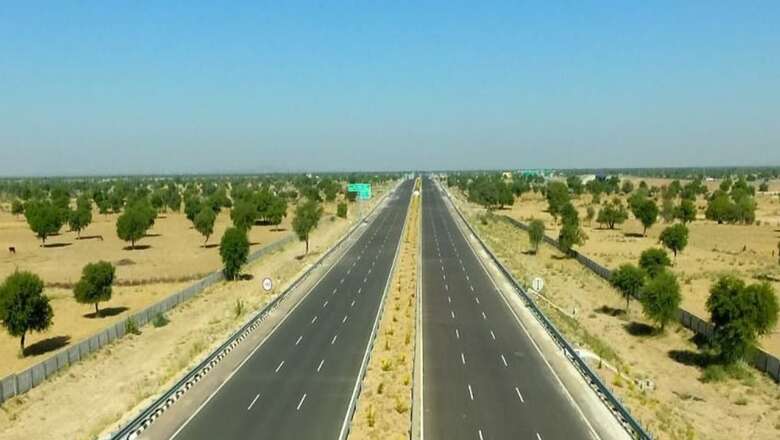
views
In the year 2024, India is gearing up for a major highway revolution as new expressways are all set to transform the way we travel.
The National Highway Authority of India (NHAI) has laid out a detailed plan for the completion of these expressways, in line with the assurance from Road and Transport Minister Nitin Gadkari that they will soon be up and running, as reported by Financial Express.
Here’s a sneak peek into the top five expressways expected to be fully operational within the next 12 months:
Delhi-Mumbai Expressway
The much-awaited Delhi–Mumbai Expressway, connecting the nation’s capital to its financial hub, is on track to be completed by February. This 1,386-kilometer route will cut the travel distance from Delhi to Mumbai by 180 kilometers and slash travel time from 24 hours to just 12.
Bengaluru-Chennai Expressway
Another vital link between major Indian cities, the Bengaluru-Chennai Expressway (National Expressway 7) is on its way. Built at a cost of Rs 17,000 crore, this 262-kilometer expressway aims to significantly reduce travel time between Bengaluru and Chennai to just over two hours, faster than a flight. With a speed limit of 120 kmph for light vehicles, it promises enhanced connectivity and a quicker commute.
Dwarka Expressway
Despite facing delays due to pollution-related restrictions, the Dwarka Expressway is set to open before the upcoming summer. Connecting Dwarka in Delhi to Gurugram in Haryana, this 29-kilometer elevated urban highway will provide an alternative route to the Indira Gandhi International Airport, easing traffic congestion on the National Highway 8.
Delhi-Amritsar-Katra Expressway
This expressway, spanning 669 kilometers, aims to reduce travel time between Delhi and Amritsar to just four hours. Expected to be operational by the end of 2024, it will also connect religious destinations such as the Golden Temple in Amritsar, Gurdwara Darbar Sahib in Taran Taran, and Vaishno Devi in Katra.
Delhi-Dehradun Expressway
The final segment of the Delhi-Dehradun Expressway is under construction, signaling a quicker route between the two cities in under three hours. The NHAI is also building Asia’s longest elevated wildlife corridor to protect the environmentally sensitive region within Rajaji National Park.



















Comments
0 comment